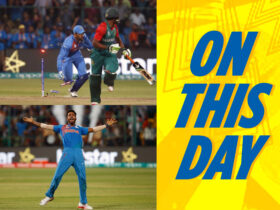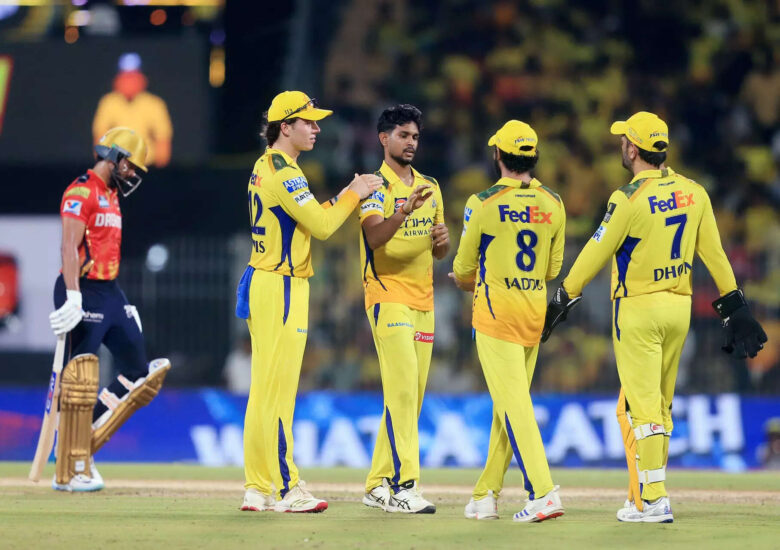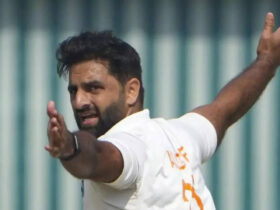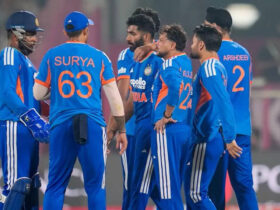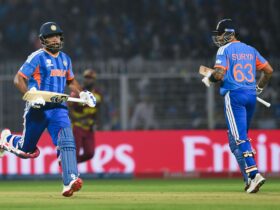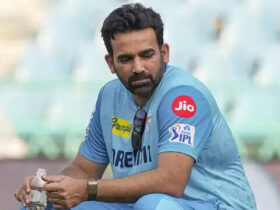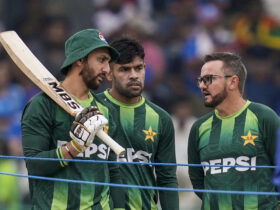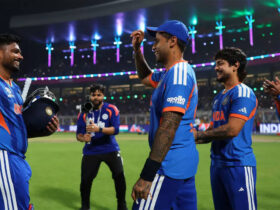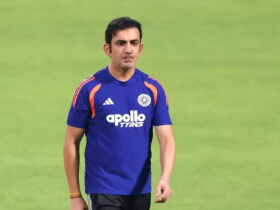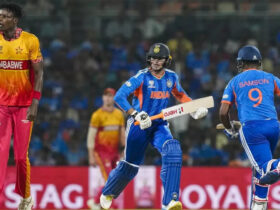From Chepauk to Eden Gardens: Is Home Advantage a Myth in the IPL?
NEW DELHI: In the world of sports, the concept of home advantage often plays a pivotal role in a team’s success. Familiar conditions, passionate crowd support, and an intimate understanding of the playing surface can tip the scales between victory and defeat. From Barcelona’s historic 38-game unbeaten streak at Camp Nou in the UEFA Champions League to Oklahoma City Thunder’s commanding 35-6 home record in the 2024-25 NBA season, the impact of playing at home is undeniable across disciplines.
Yet, when it comes to cricket, particularly in the high-octane environment of the Indian Premier League (IPL), the notion of home advantage becomes murky. While international cricket often showcases strong home dominance—think India’s remarkable 18 consecutive Test series wins at home from 2013 to 2023—the IPL paints a far less predictable picture.
International Cricket’s Home Fortress: In Test cricket, India’s home dominance saw them secure 42 wins, suffer just 4 losses, and draw 6 matches during their golden run, only broken by New Zealand in 2023. In T20 Internationals, the Men in Blue remain unbeaten in 17 consecutive home series since 2019. Factors like familiarity with pitches, tailored conditions, and roaring crowds often tilt the balance in international fixtures.
But in the IPL, where teams are a blend of local and international talent, these traditional advantages often dissolve. Franchises lease venues from the BCCI or state associations, limiting their control over pitch preparation, and the transient nature of player rosters diminishes the emotional connection to a ‘home’ ground. So, does home advantage even exist in the IPL, or is it a myth in this unique cricketing ecosystem?
IPL Heavyweights and Their Home Strongholds: Historically, teams like Chennai Super Kings (CSK) and Mumbai Indians (MI) have defied the odds with formidable home records. CSK, often dubbed the ‘Kings of Chepauk,’ boast an impressive 72 wins in 113 matches at the MA Chidambaram Stadium, translating to a win-loss ratio of 1.800. Similarly, MI have clinched 68 victories in 115 home games at the Wankhede Stadium, with a win-loss ratio of 1.478.
However, IPL 2025 has been a different story for CSK. The five-time champions endured a torrid run at home, suffering their fifth defeat of the season at Chepauk against Sunrisers Hyderabad on April 25—a record for their worst home performance in a single IPL edition. Coach Stephen Fleming didn’t hold back, lamenting the lack of discernible home advantage. “We’ve been saying for years there’s no real home advantage at Chepauk. We haven’t been able to read the wickets here recently. Each day, we’re just trying to adapt to what we’re given,” Fleming stated post their loss to Royal Challengers Bengaluru on March 28.
Pitch Controversies and Franchise Frustrations: Fleming isn’t alone in his critique. Voices across the IPL, including Ajinkya Rahane, Zaheer Khan, and Chandrakant Pandit, have questioned the role of curators in ensuring pitches suit home teams. Commentator Simon Doull even suggested that defending champions Kolkata Knight Riders (KKR) consider abandoning Eden Gardens if pitch conditions don’t improve. KKR’s home campaign in 2025 has been dismal, with just one win in five matches, three losses, and a washout—a disappointing stat with playoff hopes hanging by a thread as they face Rajasthan Royals on Sunday.
Under IPL rules, franchises havelittle say in pitch preparation. “A BCCI curator isn’t answerable to any franchise. There are no clear guidelines from the BCCI either,” a source close to ground operations revealed to TimesofIndia.com. The source added, “Franchises often blame curators, but they should focus on their cricketing quality. Venues host BCCI and state association events year-round, not just IPL games. Curators follow guidelines set by former BCCI chief curator Daljit Singh over three decades ago.”
Ethics and Equity in Pitch Preparation: Gujarat Titans COO Colonel Arvinder Singh emphasized the clarity of IPL rules. “No franchise can demand a specific type of pitch. Home advantage should come from knowing your conditions better through practice and experience, not from tailored surfaces,” he told TimesofIndia.com. South African pacer Kagiso Rabada, also with Titans, questioned the fairness of skewed pitches. “What’s the point of playing if conditions are always the same? Variety is what makes the game challenging,” Rabada remarked in an exclusive chat.
IPL 2025 Stats: Home vs Away: The numbers this season further blur the lines of home advantage. Of the 50 matches played until Mumbai Indians’ victory over Rajasthan Royals on May 1 at Jaipur’s Sawai Mansingh Stadium, only 20 were won by home teams, while 28 went to visiting sides, with one Super Over decider and a washout. This trend isn’t new—IPL 2023 saw 29 home wins against 44 away wins in 74 matches, and IPL 2022 had 34 home wins versus 40 away wins. Yet, seasons like 2018 (38 home wins in 60 matches) and the previous year (42 home wins in 72 matches) show that home dominance can occasionally emerge.
As the IPL 2025 playoffs loom, the debate over home advantage continues to simmer. Is it a relic of international cricket, rendered irrelevant by the IPL’s unique structure? Or can teams like CSK and KKR reclaim their fortresses through sheer grit and adaptation? One thing is clear: in the IPL, home isn’t always where the heart—or the win—is.


